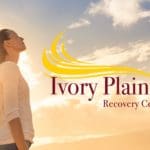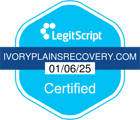The Greater Good Science Center (GGSC) defines purpose as “an abiding intention to achieve a long-term goal that is both personally meaningful and makes a positive mark on the world.” Another key point? “Like happiness, purpose is not a destination, but a journey and a practice. That means it’s accessible at any age if we’re willing to explore what matters to us and what kind of person we want to be—and act to become that person.”
The simple act of survival often limits how much introspection we can afford. But now that you have stronger resilience and are on more solid recovery ground, what might happen if you have the opportunity to expand beyond basic needs and consider more of your life’s purpose?
Exploring a Deeper Meaning
Of all the classic Greek philosophers, it seems Aristotle focused heavily on human purpose, and as a result, many inspiring quotes are attributed to him. Here are just a few:
- “Happiness is the meaning and purpose of life, the whole aim and end of human existence.”
- “Purpose is a desire for something in our own power, coupled with an investigation into its means.”
- “At the intersection where your gifts, talents, and abilities meet a human need, therein will you discover your purpose.”
So if you’re curious about what your purpose might be, you’re not alone. We’ve wrestled with finding an answer to this question for thousands of years!
The GGSC adds that “our sense of purpose will change over the course of our lifetime.” You may find this even more true now that you’ve completed treatment for substance use disorder (SUD) or alcohol use disorder (AUD) and look to find more meaning in life.
How to Discover Your Purpose
At the Viktor Frankl Institute in Texas, people from all over the world explore methods that cultivate a stronger sense of purpose. According to his research and philosophy, we “connect with meaning through the things we do, through the things we feel, and through the stance we take toward situations.” Frankl referred to these as the “creative, experiential and attitudinal avenues to meaning-discovery”, with definitions we provide verbatim:
- Creative Actions. Giving of ourselves and contributing to life through meaningful work, deeds, or achieving meaningful goals.
- Experiences. Receiving from life through meaningful experiences or relationships.
- Attitudes. Adopting the right attitude to situations, especially those of unavoidable suffering.
So, how does knowing this help you move closer to determining aspects of purpose and meaning in your life? Let’s apply these same points to aspects of recovery.
Creative Actions
One of the most powerful ways you can begin creating a better life is by giving back—whether to your community, family, or others walking a similar path. This doesn’t have to be grand or performative to provide deep fulfillment. For example, you might choose to:
- Volunteer at an animal shelter, a parks program, or with some other cause.
- Become a peer support specialist and mentor someone new in recovery.
- Return to school to pursue a different career.
- Practice art, music, or writing with others as a form of healing and expression.
These and other creative actions are acts of contribution that allow you to transform your recovery journey into something that adds value—not only to your life, but to the lives of others.
Experiences
After the chaos of addiction, many people in recovery begin to rediscover life through meaningful experiences and relationships. These moments—often simple, yet powerful—remind us that joy, peace, and connection are still possible.
A vital part of recovery is learning to be present again. Experiences that were once dulled or distorted by substance use take on new depth and importance. These aren’t just feel-good distractions—they’re intentional ways of receiving life with gratitude and purpose. For example:
- Reconnect with loved ones. Spend quality time with children, partners, or parents, and be emotionally present in those relationships.
- Build new friendships. Form sober relationships based on trust, authenticity, and shared growth.
- Practice spirituality or mindfulness. Explore faith, meditation, or other spiritual practices that offer peace and direction.
- Spend time in nature. Enjoy the grounding presence of outdoor spaces, whether through hiking, gardening, or simply watching a sunrise.
- Expand personal interests. Travel, learn something new, or rediscover hobbies that add to your joy and fulfillment.
Looking at life through this kind of lens helps you feel more alive, connected, and purposeful—key ingredients for long-term recovery.
Attitudes
Recovery is rarely free of struggle. But as Frankl wrote in his book, Man’s Search for Meaning, “When we are no longer able to change a situation, we are challenged to change ourselves.” In addiction recovery, developing the right attitude—especially toward unavoidable pain or setbacks, can be a defining source of strength and purpose.
For instance, someone dealing with the consequences of past behavior—lost relationships, legal troubles, or health issues—might initially feel weighed down by regret. But by choosing an attitude of acceptance, growth, and responsibility, they begin to reframe those difficulties not as the end of their story, but as the foundation of their transformation. Even grief or loss can carry meaning when faced with courage and compassion.
Find more ideas for how to cultivate purpose from GGSC.
Define More of Your Purpose at Ivory Plains
You deserve to seek a better life. We’re all worthy of this type of exploration, and there’s no absolute right or wrong way to define it—only that we take action. So, if you’re considering treatment for AUD or SUD, start with us. At our inclusive residential rehabilitation program in Adair, Iowa, we have board-certified professionals who specialize in many types of therapy, group support, and family counseling to give you a strong foundation for future wellness. A member of our admissions team will be glad to answer your questions, day or night—call today.








